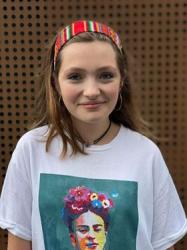
Dr. Kári Stefánsson, CEO of deCODE Genetics, has announced that the company has started screening Icelanders for COVID-19 antibodies. The new tests could provide invaluable information about the true extent of the spread of the virus in Iceland and the likelihood of a second wave of infections.
Kári announced the new screening method when he made a guest appearance at the daily COVID-19 press briefing on April 15th, Vísir reports. Þórólfur Guðnason, the chief epidemiologist, also spoke out in support of antibody testing during the conference. deCODE scientists will test blood samples for the presence of antibodies formed as part of the immune system’s response to COVID-19 infection. Around 800 Icelanders have been tested for antibodies to date and many more are scheduled to be tested shortly. Thus far two distinct antibodies have been found in the blood of the majority of people who have recovered from the virus.
The new tests will provide a more accurate picture of the true extent of the virus’ spread in Iceland. It may prove particularly useful in identifying people who may have experienced very mild symptoms of the virus and not realised they were infected. Antibodies are detectable in blood samples for a long time after the virus has left the body, meaning antibody testing can provide accurate information about historic infections. Recent random COVID-19 screenings suggested that around 0.6% of the population are infected with the virus, but the antibody tests may reveal a higher proportion have had COVID-19 in the past.
The launch of antibody tests marks a new phase in deCODE’s response to the COVID-19 epidemic in Iceland as scientists start to look forward. The antibody tests may suggest the likelihood of a second wave of infections in Iceland. Whilst the infection rate is currently in decline, there are fears that cases may increase when current restrictions, such as the gathering ban, are relaxed. The new tests will indicate the proportion of the population that has immunity against future infection, having already formed the antibodies required to combat the virus. If a high proportion of those tested are found to have the formed the antibody, the Icelandic population as a whole will be relatively well protected against a second outbreak. However, it’s worth noting that it is not yet known how long COVID-19 antibodies remain in the body and therefore how long immunity lasts.
The tests may also prove useful for the authorities coordinating the front-line COVID-19 response. Individuals who have fully recovered from the virus and test positive for COVID-19 antibodies could be used to carry out roles that pose a higher risk of virus transmission.
Once again Iceland is ahead of the curve; it is one of the first countries to carry out these new tests. Antibody tests are thought to be particularly useful in countries that did not conduct as a rigorous screening as Iceland in the earlier stages of the pandemic, and countries such as Australia and the United States have recently launched similar programmes.
Buy subscriptions, t-shirts and more from our shop right here!

















